Welcome to the world of the vegan Mediterranean diet! This popular eating plan combines the heart-healthy principles of the traditional Mediterranean diet with a focus on plant-based foods. While this may seem contradictory, it is possible to follow a vegan Mediterranean diet by incorporating plant-based protein sources into your meals.
In this guide, we will discuss how you can easily incorporate protein sources into your vegan Mediterranean diet, as well as the health benefits of doing so.
Legumes
Legumes like lentils, chickpeas, and beans are key in the vegan Mediterranean diet. They’re a great source of protein and give you important nutrients like fiber, iron, and potassium.
Add legumes to your meals by using them in soups, stews, and salads. You can also make tasty dips and spreads with them, like hummus or bean dip.
Nuts and Seeds
Nuts and seeds are another great source of protein on a vegan food diet. They also provide heart-healthy fats and essential vitamins and minerals.
Try adding a handful of nuts or seeds to your morning oatmeal or smoothie for an extra boost of protein. You can also sprinkle them on top of salads or roasted vegetables for a crunchy and nutritious topping.
Tofu and Tempeh
Tofu and tempeh, made from soybeans, are popular sources of plant-based protein in the vegan community. These versatile ingredients can be used in many dishes, such as stir-fries, curries, and sandwiches. Experiment with different flavors and spices to create delicious tofu or tempeh dishes that will keep you satisfied and energized throughout the day.
Quinoa
Quinoa is a grain that has become increasingly popular in vegetarian diet due to its high protein content. Unlike other grains, quinoa is considered a complete protein, meaning it contains all of the essential amino acids that our bodies need. Use quinoa as a base for salads, stir-fries, or even as a substitute for rice in dishes like stuffed peppers or burrito bowls.
Plant-Based Protein Powders
For those wanting more protein on a vegan Mediterranean diet, plant-based protein powders are handy. Made from pea, hemp, or brown rice protein, you can add them to smoothies, oatmeal, or baked goods. Choose a good powder with little added sugar or additives.
Nutritional Yeast
Nutritional yeast is loved by vegans for its cheesy, nutty taste and high protein. It also has important B vitamins and minerals. Sprinkle it on pasta, salads, or roasted veggies for a tasty and healthy boost.
Read Aslo: Navigating the Best Daily Deals at Your Local Dispensary Outlet
Vegetables
Don’t forget that vegetables have protein too! They may not have as much protein as other foods, but adding different veggies to your meals can help you get enough protein every day. Leafy greens like spinach and kale, and cruciferous veggies like broccoli and cauliflower, are great for adding plant-based protein to your diet.
For advice on adding protein to your vegan Mediterranean diet, think about consulting a registered dietitian service. They can give you tips based on your own needs, making sure you get the best nutrition while enjoying tasty and balanced meals.
Incorporate these Protein Sources into Your Vegan Mediterranean Diet
Following a vegan Mediterranean diet does not mean sacrificing protein in your meals. By incorporating these nutritious food into your meals, you can easily meet your daily protein needs while also reaping the many health benefits of this eating plan.
Is this article helpful? Keep reading our blog for more.

